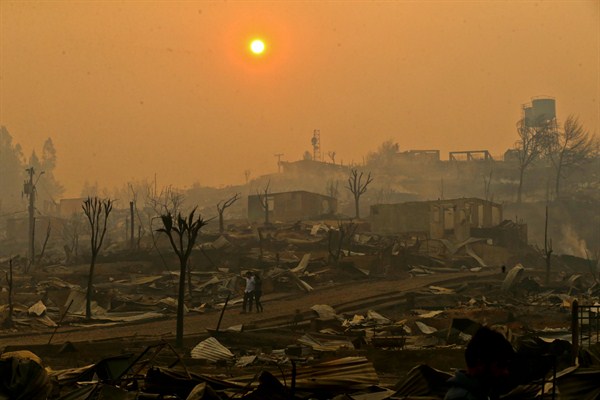For the past three weeks, much of Chile was burning. The country is prone to seasonal wildfires, but this year, the worst fires in Chilean history raged out of control. By the time they receded, 11 people were dead, nearly 1.5 million acres of land were burnt, and 1,644 homes were destroyed. Smog choked the air in the capital, Santiago, and major cities narrowly escaped devastation. One village in central Chile, Santa Olga, was burnt completely to the ground.
For many observers, these devastating fires are a reminder of the advancing perils of climate change. But in Chile, they also threaten to seal the troubled legacy of President Michelle Bachelet.
In polls released last week, 76 percent of respondents did not approve of Bachelet’s handling of the wildfire crisis, nor her Cabinet’s. The polling followed criticisms from top opposition politicians, as well as technical experts, that despite record temperatures, Bachelet and her government failed both to prepare for the latest rash of fires and to adequately respond once they had begun.

